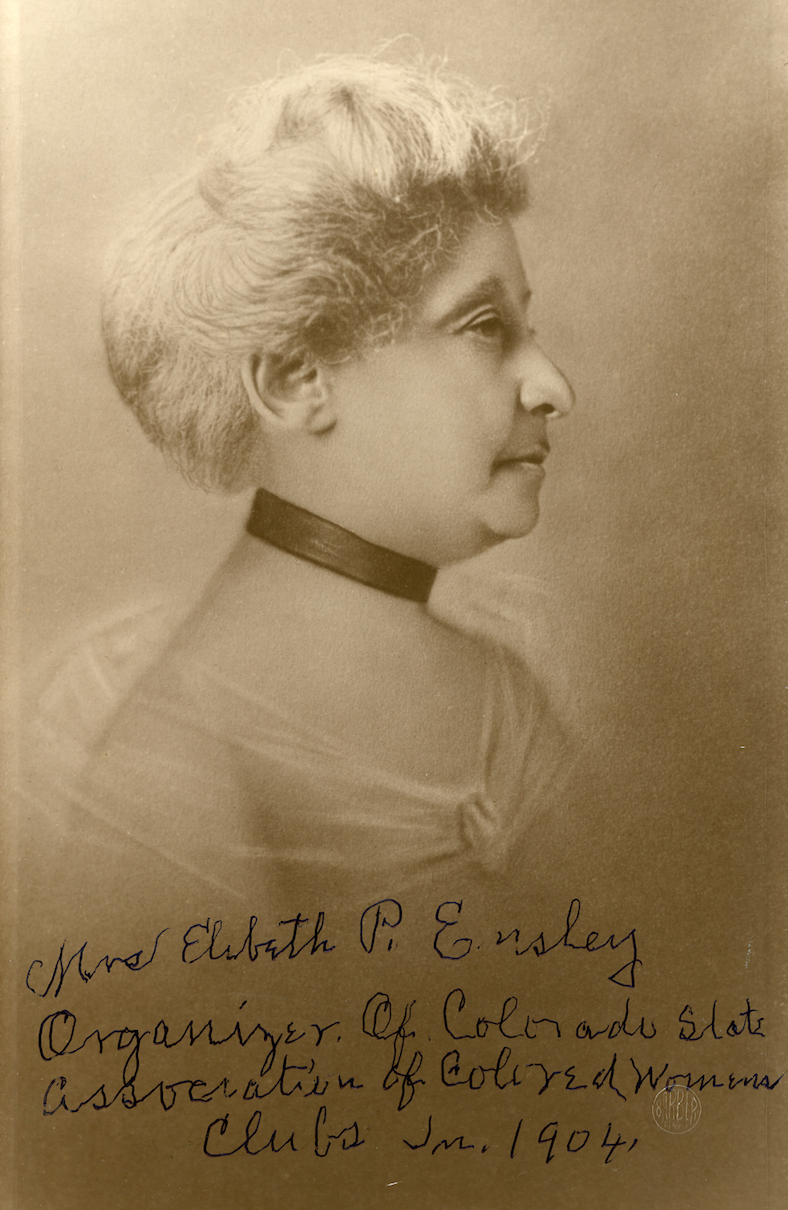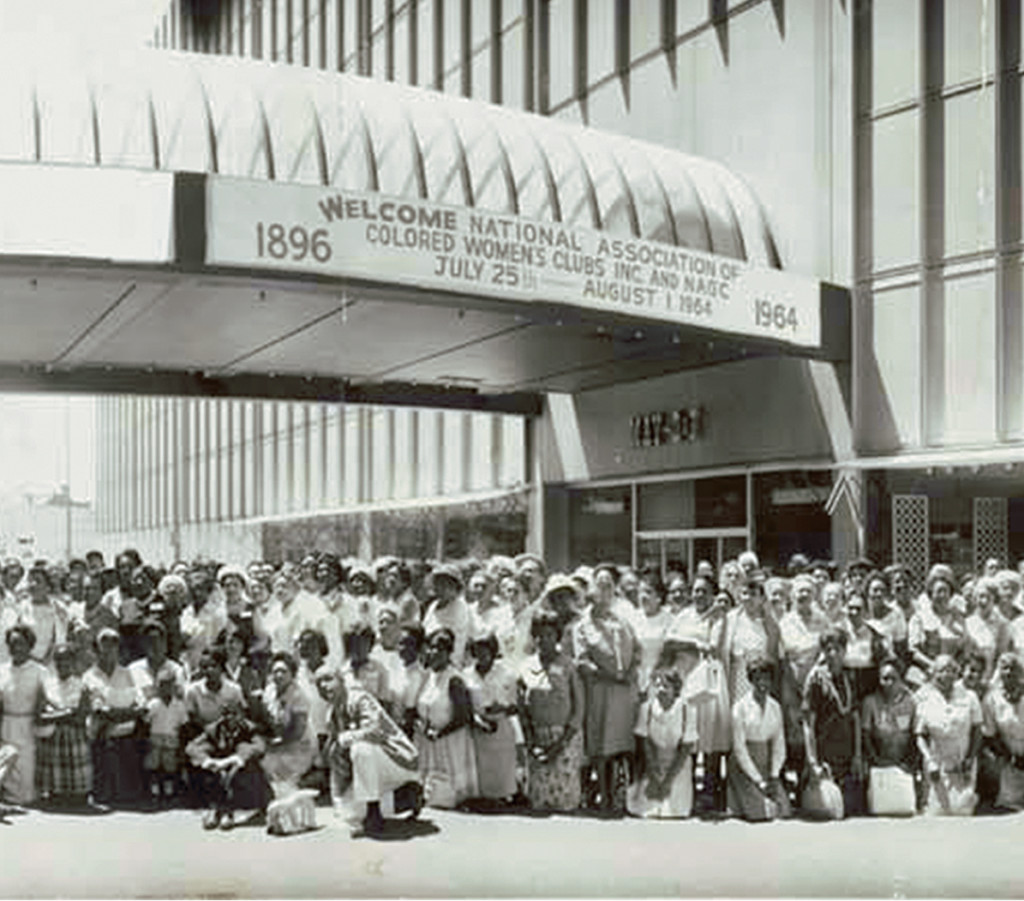Story
Elizabeth Piper Ensley and the 100th anniversary of the 19th Amendment
Celebrating Black History Month
This year marks the 100th anniversary of the passage of the 19th Amendment, which banned gender discrimination in voting laws throughout the country. This landmark centennial will see many organizations commemorate a milestone of democracy.
Colorado was far ahead of other states in beginning to grant voting rights to women. When Colorado's voters passed HB 118 in November of 1893, it was the first time in U.S. history that a popular vote had passed women's suffrage into law. Elizabeth Piper Ensley was instrumental in Colorado’s path towards that moment. Piper was an African American educator, political activist, and suffragist, so it is only natural that this Black History Month, her achievements are highlighted, and her story told.
2020 will now see her recognized as an honoree in the National Women’s History Alliance. An often hidden figure in the women’s movement narrative, Ensley will now also receive a posthumous induction in the Colorado Women’s Hall of Fame. In addition, Denver’s Black American West Museum is celebrating Ensley with a photographic exhibition—and an interactive play depicting her work for race equality and voting rights for all. (The play, Ain't I a Woman, will be performed at the Black American West Museum on March 21. For more information call (720) 242-7428.)
Ensley was born in New Bedford, Massachusetts, in 1847. She moved to Denver in the early 1890s and, having worked closely with women’s suffrage organizations in Boston, she joined the Non-Partisan Colorado Equal Suffrage Association (NCESA). As its treasurer, she was one of only a handful of African American women leaders nationwide working for suffrage rights within a racially integrated group.
Their mission was to win passage of a state referendum legalizing the vote for Colorado women. Ensley mobilized African American women to join the suffrage campaign and persuaded African American men to vote for women’s suffrage.
After the success of the referendum, Elizabeth founded the Colored Women’s Republican Club, and worked to educate Black women on the importance of exercising their newly granted political influence. She was the Denver correspondent for the national newspaper Woman's Era, which published news about women's suffrage in Colorado. She also created the Colorado Association of Colored Women’s Clubs in 1904. The group’s rallying song encapsulated Elizabeth Ensley’s lifelong mission to fight for the rights of women and African Americans:
“We’re Colorado’s colored women struggling for a place;
We’re loyal to our country and we’re loyal to our race;
We’re holding high the banner, in the dust it must not trail,
As we go marching on.
Onward, upward to the summit,
Onward, upward to the summit,
Onward, upward to the summit,
We’re advancing step by step.”
Elizabeth later joined the Colorado Federation of Women’s Clubs, a state organization primarily led by and comprised of white women. As an active and important black member of the group, she worked tirelessly to bridge the racial lines in women’s organizations, helping to break the ‘color-barrier’ that existed for many African Americans.
Unfortunately, Colorado continued to be a distinct anomaly in the US voting landscape after the national ratification, because millions of women of color were still unable to exercise their newly acquired rights for enfranchisement.
In many "Jim Crow" southern states, discriminatory practices persisted, denying voter registration for both African American women and men through fraud, intimidation, poll taxes and literacy tests. Most of these voter suppression tactics, depriving them of a political voice in local and federal elections, were not made illegal until the enactment of the Voting Rights Act of 1965.
Some of Ensley's white counterparts felt gaining the women’s vote was just about achieving parity with men. But Ensley sought suffrage to further human rights for all. Impactful political engagement, she argued, meant the ability to build power within communities. It also created the ability to effect real change by advocating for access to education, racial equality, and a legitimate stake in society.
Colorado Women’s Hall of Fame 2020 Induction Gala for information and tickets
Black American West Museum or call (720) 242-7428 for information about upcoming events
More from The Colorado Magazine
Health, Recreation, Education, and Uplift: Lincoln Hills and Black Recreation in the Colorado Mountains When temperatures soared in cramped, noisy cities, Colorado’s higher elevations promised chilly nights and mild days spent fishing, camping, and hiking under shady pine trees. Unlike their white counterparts, however, African Americans could not head just anywhere in the mountains. Not far outside of Denver, Lincoln Hills, a vacation community developed for Black people, represented both an escape from the city and an escape from segregation.
The Women of the WAC Woman Soldiers at Fitzsimons General Hospital
A Well-Elevated Militia When we asked Denver’s Rainbow Militia to show us what democracy looks like, they responded with dance, poetry, and song. You’re going to want to see this.


